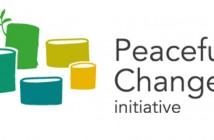From Lawbreaking to Lawmaking is an advocacy campaign for a reform of the criminal system in Serbia from within, i.e. based on proposals made by prisoners and ex-prisoners using the Legislative Theatre model.
Duration: from January to December 2013

The project is supported by Open Society Foundation.
About the project: The project is carried out by three Serbian NGOs: the Lawyers’ Committee for Human Rights (YUCOM), the Belgrade Centre for Human Rights (BCHR) and ApsArt Centre for Theatre Research. From Lawbreaking to Lawmaking combines the expertise of law analysis, human rights campaigning and Theatre of the Oppressed.
The human rights situation of a society may be assessed through the way it treats its most vulnerable members, such as prisoners, in particular those belonging to national minorities. As assessed by the Ombudsman in his investigations, support strategies in this area are vague and lack tangible effect. The project aims at bringing a change to this situation since fighting against criminality is not best suited by repressive policies towards detainees.
Project objective: To raise the voices of the (ex-)prisoners of Serbia, public and interactive theatre performances both inside and outside prisons give participants the chance to bring forward their ideas for a penal reform.
Project activities: The centerpiece of every performance is a play about the situation of Serbian (ex-)prisoners, entirely based on first-hand reports by the (ex-)prisoners and played by four actors with previous experiences in the Serbian penal system. These plays simulate real situations calling for interaction with the audience in a search for solutions to prisoners’ problems. At the end of every performance, a list of proposals is gathered and translated by lawyers into law and/or policy proposals.
At the close of the project by the end of 2013, a Legislative Report will be published in which concrete and necessary reform proposals will be formulated and substantiated. The three spearhead proposals will be presented to Parliament to become a topic of lawmaking. In this regard, institutional support will involve a partnership with the Serbian Ombudsman who is legally authorized to present legislative projects to the Parliament.
Thus the project’s impact will be social as well as legal. Assessing issues from the inside as provided for by the project’s methodology will allow for lawmaking to address the real needs of prisoners who usually lack a voice before decision makers. The Theatre Legislation strategy will also bring prisoners’ issues to citizens and trigger a wider public debate.





